Rome (Italy). May 29, 2022 marks the 70th anniversary of the death of Fr. Ferdinando Maccono, official biographer and deputy postulator of the cause for the canonization of Mother Mazzarello. In the 150th anniversary of the foundation of the Institute of the Daughters of Mary Help of Christians (1872-2022), Sr. Eliane Petri, FMA, deepens the study of her life and mission, which is precious for getting to know the Saint of Mornese.
We are faced with an exceptional figure not only for what he has done, but above all for his human and spiritual fortitude, for his multifaceted figure: man of faith, profound seeker of truth, passionate priest-educator, appreciated writer, competent vice postulator of some causes of canonization promoted by the FMA Institute.
Ferdinando Maccono was born in Torre Bairo in Canavese (Turin) on 7 July 1865. He attended courses in Theology in the Diocesan Seminary of Ivrea and, ordained a priest on 23 May 1891, was sent as assistant pastor to Chivasso. Here, an old desire to enter the Congregation founded by Don Bosco was reinvigorated in his heart and, after three years of priesthood, to the chagrin of the Bishop who esteemed him, in 1894 he left the Diocese to become a Salesian.
After his religious profession, he was assigned to the House of Milan. Later, he was Director of Ascoli Piceno (1906-1907), where he was entrusted with the direction of ‘Fides’, an organ of the Commission of Cardinals for the Preservation of the Faith in Rome. To better attend to this mission, he then had to move to Rome, where he was assigned to the parish of Holy Mary Liberator at Testaccio.
In 1909, he received from Fr. Michele Rua, then Rector Major of the Congregation, the task of writing a complete and documented biography of Mary Domenica Mazzarello, in view of the cause of beatification. He went to work with commitment and responsibility. Soon after, he became the deputy postulator of the cause. To better carry out his mission as biographer and vice postulator, in 1910 he moved to Nizza Monferrato, where, attending to the spiritual direction of the FMA and teaching Religion in the parity Normal School, he had the convenience of questioning people and consulting necessary documents.
Fr. Maccono’s activity in the period from 1910 to 1937, was truly prodigious. Although he was frail in health, he was able to dedicate himself not only to the causes of beatification of Mary Domenica Mazzarello, Teresa Valsè Pantellini, and Maddalena Morano, but also to the spiritual direction of the novices and female students of the FMA and to the teaching of religion in the Normal School. Relative to this task he wrote many works, some translated and disseminated in various languages, including four volumes for the teaching of Religion entitled ‘The value of life’, also distinguishing himself as a writer.
In addition to going ahead with the beatification and canonization of Mother Mazzarello as Vice-Postulator, he diligently edited 4 editions of the Saint’s biography (1913, 1934, 1940, 1960), correcting, updating, and enriching it with new information based on documents and testimonies that were gradually being discovered. The last edition (1960) was published after his death.
The vast work of the biographer and vice postulator of Mary Domenica Mazzarello remains a point of reference, a real source for knowledge about the Saint.
Coming into contact with the figure of Mary Domenica and with the relative documentation for the process of beatification and canonization, Fr. Maccono found himself in front of two other figures closely linked to the life of the first Superior General, whose moral and spiritual stature were so great that he felt the need to write a biography to spread knowledge of them. These two figures are those of Fr. Domenico Pestarino (1927) and Sr. Petronilla Mazzarello, the close friend of Mary D. Mazzarello (1940).
To an existence dedicated to a vast apostolate, crosses could not be lacking, which Fr. Maccono knew how to welcome and carry with faith and with a generous heart.
He worked for the cause of beatification of Mary Domenica Mazzarello until the year 1937, when he was dismissed from the role of vice-postulator and replaced by Fr. Giovanni Scaparone, due to his advanced age, poor health, and above all, because of some difficulties and misunderstandings that were created between him and the Superiors for having supported the title of Co-foundress to be attributed to Mary Domenica Mazzarello, which according to him was due her in “justice and truth”.
He then spent three years of forced rest in Monte Oliveto di Pinerolo until 1940, when he was transferred as spiritual director to the FMA Novitiate in Torre Bairo. This was his last field of work. He still published his latest studies. From then on, he was forced to abandon even the pen, to begin to immerse himself in the great silence of God.
In 1945, he arrived at the Salesian Institute of St. Michele, a philosophical studentate in Foglizzo Canavese (Turin). Here he had the grace to see the culmination of his labors with the achievement of the Canonization of St. Mary Domenica Mazzarello, even if he did not participate in the solemn rite. He died in Foglizzo Canavese (Turin), on 29 May 1952.
The history of the beatification and canonization of the Saint of Mornese remains linked to the life and action of many people and especially to that of Fr. Ferdinando Maccono. Thanks to the zealous work, the silent and tenacious historical research of Fr. Maccono, Mary Domenica Mazzarello was drawn from the silence of humility to the glory of the altars.
We are in a year that brings with it a happy coincidence: we celebrate the 70th anniversary of the death of Fr. Ferdinando Maccono and the 150th anniversary of the foundation of the FMA Institute. Remembering and getting to know this figure a little more in this context is a duty of gratitude.
The great history of the FMA Institute is built up by many small stories of life, by many FMA and Salesians of Don Bosco who lived their mission with total dedication, competence, passion, and many times in silence and in hiddenness. The Institute would not be what it is today without this part of its history. If today we can get to know more about Mother Mazzarello, the Co-founder of the FMA Institute, we owe it to the long and patient research and study carried out by Fr. Ferdinando Maccono.


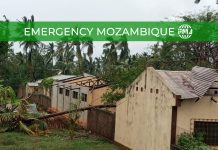
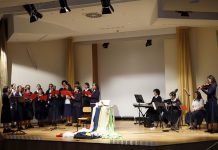
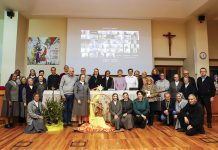

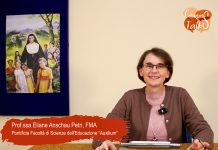


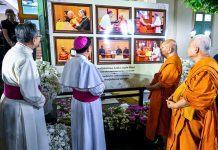
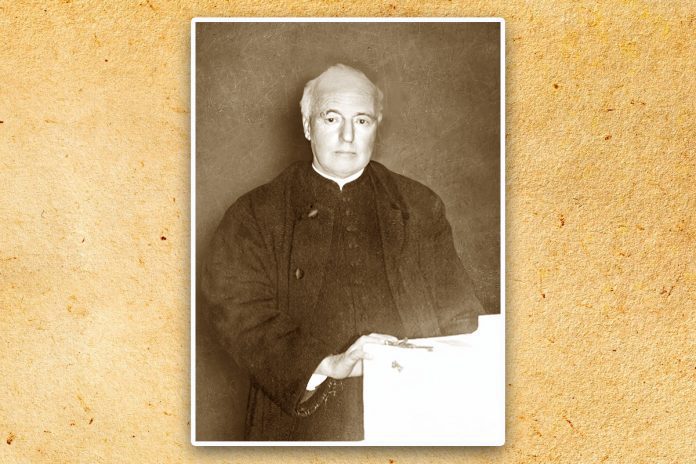










Grazie, Suor Eliane, per questo studio su Don Maccono che aggiunge nuove note alle nostre conoscenze . A lui veramente dobbiamo tanta riconoscenza per aver raccolto una quantità di testimonianze su Madre Mazzarello, soprattutto da Suor Petronilla, che altrimenti non avremmo. Il tuo lavoro arricchisce il patrimonio di famiglia.
Gracias por estos datos sobre Don Maccono y el trabajo realizado en la causa de Madre Mazzarello. Brota espontaneo el gracias y el reconocimiento a este grande salesiano.
Ringrazio per questo contenuto di cui sapevo quasi nulla e colgo l’occasione per ringraziare degli altri messaggi, tutti lodevoli. Sono un materiale utilissimo anche per le buone notti!!!
Conoscere in modo maggiormente approfondito le ‘cose di casa’ fa bene e crea appartenenza.
GRAZIE
No hay palabras que expresen nuestra profunda gratitud a este gran hermano salesiano, sin él la historia hubiera sido otra… Para él todo nuestro cariño y nuestro recuerdo de generación en generación. Siga intercediendo por nuestro querido Instituto y para que la historia siga viva, sobre todo en las casas de formación.
Gracias por hacer memoria de quien lo merece.